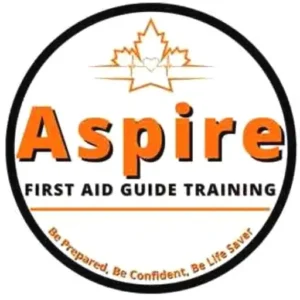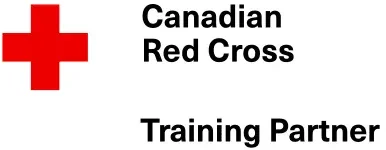First responder & EMR & Advanced Marine First Aid Training in Mississauga
We offer high-quality Pre-Hospital Care training in Mississauga for First Responders, Emergency Medical Responders (EMR), & Advanced Marine First Aid for anyone providing care in emergency or pre-hospital settings. All courses are delivered following Canadian Red Cross standards, ensuring up-to-date, nationally recognized instruction.
Our programs are designed to meet the needs of emergency medical services (EMS) and related fields. Training includes both individual and team-based approaches to life-support skills, with a focus on building real-world confidence and competence.
OUR Advance Programs
Teaching Time:
40 hours teaching time
8:00 AM – 6:00 PM
4-day training
Course Content
- The Professional Responder
- Assessment
- Responding to Call
- Shock
- Infection Prevention Control
- Anatomy Physiology
- Poisoning
- Airway Management
- Respiratory Emergencies
- Circulatory Emergencies
- Hemorrhage and Soft Tissue Trauma
- Musculoskeletal Injuries
- Pharmacology
- Chest, Abdominal and Pelvic Injuries
- Head and Spinal Injuries
- Acute and Chronic Illnesses
- Environmental Illnesses
- Transportation
- Pregnancy, Labour and Delivery
- Crisis Intervention
- Special Populations
- Reaching, Lifting and Extricating Patients
- Multiple-Casualty
- IncidentsMarine Environment
Requirements
-
Proof of valid First Responder Canadian Red Cross Certificate
-
100% attendance of the course
-
75% score on the multiple choice knowledge test
-
Successful demonstration of required skills
-
Successfully complete minimum of two practical scenarios (one medical, one trauma)
Certification
-
Certificate will be issued, valid for 3 yeare
Teaching Time:
40 hours teaching time
8:00 AM – 6:00 PM
4-day training
Course Content
- The Professional Responder
- Assessment
- Responding to Call
- Shock
- Infection Prevention Control
- Anatomy Physiology
- Poisoning
- Airway Management
- Respiratory Emergencies
- Circulatory Emergencies
- Hemorrhage and Soft Tissue Trauma
- Musculoskeletal Injuries
- Pharmacology
- Chest, Abdominal and Pelvic Injuries
- Head and Spinal Injuries
- Acute and Chronic Illnesses
- Environmental Illnesses
- Transportation
- Pregnancy, Labour and Delivery
- Crisis Intervention
- Special Populations
- Reaching, Lifting and Extricating Patients
- Multiple-Casualty
- IncidentsMarine Environment
Requirements
-
Proof of valid First Responder Canadian Red Cross Certificate
-
100% attendance of the course
-
75% score on the multiple choice knowledge test
-
Successful demonstration of required skills
-
Successfully complete minimum of two practical scenarios (one medical, one trauma)
Certification
-
Certificate will be issued, valid for 3 yeare
Teaching Time:
40 hours teaching time
8:00 AM – 6:00 PM
4-day training
Course Content
- The Professional Responder
- Assessment
- Responding to Call
- Shock
- Infection Prevention Control
- Anatomy Physiology
- Poisoning
- Airway Management
- Respiratory Emergencies
- Circulatory Emergencies
- Hemorrhage and Soft Tissue Trauma
- Musculoskeletal Injuries
- Pharmacology
- Chest, Abdominal and Pelvic Injuries
- Head and Spinal Injuries
- Acute and Chronic Illnesses
- Environmental Illnesses
- Transportation
- Pregnancy, Labour and Delivery
- Crisis Intervention
- Special Populations
- Reaching, Lifting and Extricating Patients
- Multiple-Casualty
- IncidentsMarine Environment
Requirements
-
Proof of valid First Responder Canadian Red Cross Certificate
-
100% attendance of the course
-
75% score on the multiple choice knowledge test
-
Successful demonstration of required skills
-
Successfully complete minimum of two practical scenarios (one medical, one trauma)
Certification
-
Certificate will be issued, valid for 3 yeare
What’s the difference between First Responder and EMR?
First Responder (FR) is ~40 hours and covers patient assessment, BLS/CPR, hemorrhage control, management of medical/trauma emergencies, and more. Emergency Medical Responder (EMR) is a more advanced program (typically 80–120 hours, depending on jurisdiction) that builds on FR and prepares you for higher-acuity responses and transport-related care.
Who should take FR vs. EMR?
Take FR if you’re entering public safety or support roles that require foundational pre-hospital care. Choose EMR if you need advanced patient assessment/intervention skills for emergency services or transport environments (e.g., industrial response teams, event medics). (Scope and depth per Red Cross course descriptions.)
How long are the courses and recertifications?
FR: 40 hours; Recert: ~20 hours. Canadian Red Cross
EMR (full): 80–120 hours; Recert: ~40 hours
What are the prerequisites?
FR: No prerequisites. Canadian Red Cross
EMR (full): Current Standard First Aid with CPR Level C is required. Canadian Red Cross
EMR bridging from FR: Requires proof of current Red Cross FR certification; offered in a condensed timeframe for qualified FRs
Do these courses include BLS and AED skills?
Yes. FR and EMR teach BLS/CPR skills and AED use; for EMR, Red Cross lists a 1-year Basic Life Support (BLS) certification in addition to the EMR credential
How long is my certification valid?
Red Cross FR and EMR certificates are valid for 3 years; BLS is 1 year (many employers require it to be current annually)
What do I need to do to pass?
Red Cross completion standards require: minimum 75% on a closed-book written evaluation, successful demonstration of required skills, two evaluated scenarios (one medical, one trauma), and 100% attendance/participation.
What topics are covered?
Both courses include patient assessment, airway management and respiratory/circulatory emergencies, shock, soft-tissue and musculoskeletal trauma, head/spinal injuries, acute/chronic illnesses, special populations, crisis intervention, lifting/extrication, multiple-casualty incidents, and more (with additional depth in EMR)
Is there an EMR “upgrade” path from First Responder in Mississauga?
Yes. Qualified FR holders can bridge to EMR through a condensed Red Cross pathway (proof of current FR certification required). We run bridging/recert dates regularly in Mississauga.
What should I bring to class?
comfortable clothing for floor skills, and any pre-course modules or prerequisite proofs (e.g., SFA/CPR-C for EMR)
When will I receive my certificate?
Red Cross issues digital certificates; timing can vary by partner/course, but certificates are typically released after all evaluations are verified. (BLS appears separately and is valid for 1 year.)
How often should I recertify?
Plan on FR/EMR every 3 years and BLS every year to keep employer compliance current; if your BLS expires before your FR/EMR does, renew BLS on its own.
Do you offer evening/weekend or accelerated dates in Mississauga?
Yes — we post weekday, weekend, and condensed offerings on the Mississauga schedule so you can match your shift pattern
Does completing EMR guarantee acceptance into paramedic programs or specific employers?
No — admissions and hiring standards vary by school/employer and province. EMR is widely recognized training, but always confirm the exact requirements with your target program or service
Can I take EMR if my SFA/CPR-C has expired?
No — EMR requires current SFA with CPR-C on entry; renew SFA/CPR-C first, or register for our combo options when available.





